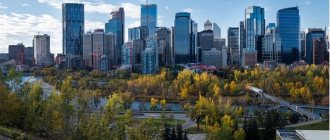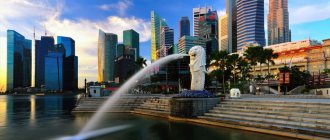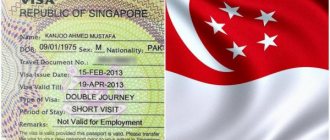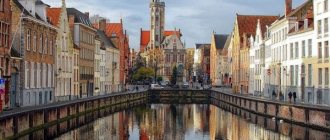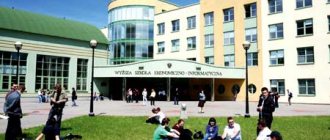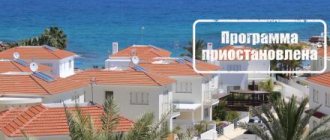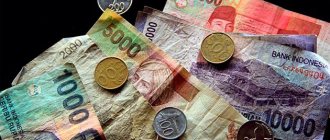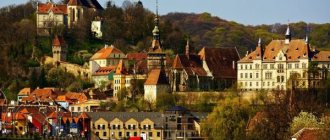Why did you move? “My life has become a little monotonous”
– In Minsk I worked as a business analyst. The specificity of our IT business is that it is mainly outsourced,” says Dmitry. – You are far from the real business: customers, as a rule, are from the States, Great Britain, Scandinavia.
It seemed that my life had become a little monotonous. I sincerely tried to diversify it: I participated in organizing events for the business analyst community, taught English, became a business analysis trainer, and was engaged in consulting. But no matter how hard I tried to entertain myself, I was still missing something.
I can’t say that I was bombarded with offers from different countries and I had to choose between the USA, Great Britain, Singapore and Australia. No, an offer just appeared from an employer, and I agreed. I have already been to Singapore before and was very impressed by the level of development of the country.
Obtaining a residence permit
A foreign citizen planning to travel to Singapore first of all applies for a visa, taking into account the purpose of his visit and future plans in the country. There is a list of required documents:
- international passport;
- electronic questionnaire;
- color photography;
- invitation from the receiving party;
- medical insurance.
Documents are submitted digitally. Visa processing takes from 2 to 5 days.
After arriving in the country, you can immediately contact the appropriate organization with an application for a residence permit. Required package of documents:
- application drawn up according to the sample;
- 4 photos;
- Russian and foreign passport;
- certificate of good conduct in Russia;
- confirmation of solvency (there are different options - bank statement, certificate of employment, etc.);
- a certificate stating that a medical examination has been completed in Singapore to determine the presence of dangerous diseases;
- other papers that can confirm the legality of the basis for entry and long stay on the territory of the state. This could be a contract with a local employer, a marriage registration document, a contract with an educational institution, a certificate of blood relationship with residents;
- receipt of paid duty.
The cost of obtaining permits depends on which program is chosen for immigration. Investors pay 7 thousand dollars for stamp duty and registration of a permanent residence permit, students pay about 600 dollars (in local currency) for a temporary residence permit.
“Singapore is a very expensive city. Will I be able to lead a decent life?
I first came there back in 2013 and jokingly said that I would like to live here. On my second trip, I took the cable car to Sentosa Island and took a photo from the cabin along the way. The photo shows the building where my office is now located!
I tried not to focus on the bad and thought more about why I should move. And there are many reasons! Firstly, the weather is great and it’s summer all year round. Secondly, it is the financial capital of Southeast Asia, where business, banks, and fintech are concentrated. I knew that I would work directly with clients, see where the money comes from, how everything really works - I missed this in Belarus.
In addition, there are a lot of different cultures here, a mix of West and East, which I really wanted to plunge into. Moreover, Singapore has a rather low entry barrier: a sort of Asia 1.0, the easiest way to get acquainted with Asian culture in an environment that is safe for a foreigner.
However, I understood that Singapore is a very expensive city. For the last ten years it has always been on the list of the most expensive places in the world, and I was a little afraid. Will I be able to lead a decent lifestyle with the salary offered? Will I be able to maintain a level no worse than it was in Minsk? I was also worried about the role change. After becoming a business analyst, I was supposed to become a consultant in strategic business analysis, project management and Agile.
But I made up my mind. My grandmother’s reaction to the news of the move was most interesting. I came to the village and told her that I had something important to tell her. She lit up so much! I thought that I was getting married or going to have children.
Having learned that they were talking about moving to Singapore, she replied: “God, why are you going to this China?!” She asked me for time to come up with arguments against moving, but now she supports me, like other close people.
Features of life in Singapore
The republic is located on 63 islands of Southeast Asia (the main island is Singapore). In the 19th century, the state was a British colony, in the mid-20th century it was a Japanese colony, and until 1965 it was part of Malaysia. It was then that the country declared independence and began its journey from a third-rank power to a highly developed one. This happened largely thanks to Lee Kuan Yew. When he headed the government, even drinking water and construction sand had to be purchased. When he left his post (but still remained an advisor in power until 2011), the islands had already become a major financial center, home to representative offices of international corporations and banks.
Today, the country consistently ranks among the top five among all world powers in many positive international ratings - in terms of living standards, healthcare efficiency, social security, absence of crime, business conditions, etc. In terms of population density, the city-state ranks second in the world. There are only 719 sq. km there are more than 5 million inhabitants (about 80% of them are Chinese).
Singapore on the map
“In Singapore there is no concept of personal space, no one respects your time”
The startup I work for provides consulting on digital transformation of traditional businesses. I found the job by chance through LinkedIn, and after several interviews they made me an offer. It all starts with a telephone screening (employee search technology - Ed.): who you are, what you can do, what experience, what technologies you have, what salary you are applying for and whether you are ready for relocation.
Then two stages of technical interview. At the first, you have a detailed conversation about your applied skills, at the second, you receive a specific work case. The final stage is a conversation with the CEO. You are assessed not only on your skills: it is important that your values as an employee coincide with the values of the company.
I got involved in the work process a week before the move. I was added to the chat and told about the project - consulting for one of the largest banks in Singapore. On the very first day, I left the plane to meet with a client. It’s nine in the morning, there are fifty high-ranking bank employees - and I immediately need to communicate with them, find out the essence of their problem.
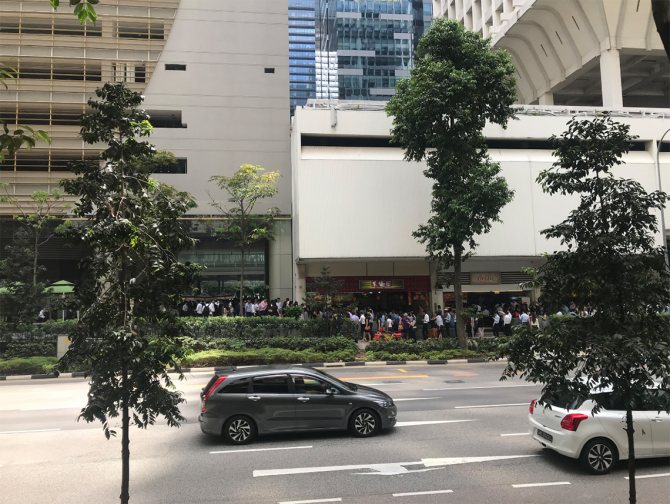
Gradually I began to notice differences. The first thing that catches your eye is the long working day. Top management can start at 7:30 and upload at 21:00. At the same time, they work here even less efficiently than in Belarus.
My standard day looks like this: I had breakfast, came to the office and am ready to get down to business, but the first thing my colleagues say is: “Let’s go have breakfast.”
After that, we can get down to work for half an hour or an hour, and it’s time for an early lunch. By 16:00 everyone starts whining that they are hungry because they had lunch too early, and we go for lunch a second time.
In Singapore there is no concept of personal space, no one respects your time after work or on weekends. The boss can write until two o'clock in the morning in instant messengers and seriously expect you to respond. When do they even sleep?
You can receive the first message at six in the morning, and they will be offended if you did not read and respond. They will also tell you why the task was not completed by 9:00? Work chats do not stop even on weekends. If you do not participate in discussions, this may negatively affect your reputation. Fortunately, all this concerns me to a lesser extent, since I am an outside consultant.
Traveled: Singapore
Stories about Krasnoyarsk residents who decided to radically change their lives - go to another country, find work and housing there. In the summer of 2011, 21% of the country's population thought about emigrating. For comparison, 20 years ago there were only 5%. According to VTsIOM, the fifth part of the Russian population who wants to “get out” are mostly highly educated young people.
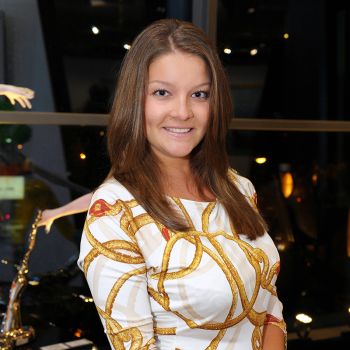
Many people know them in Krasnoyarsk. They still have family and friends here. But they chose to leave. Online conversation, 10 questions. Ekaterina Kolmakova. Krasnoyarsk - Singapore.
Do you need to prepare for moving? Or is an impulsive decision the only way to leave with 100% probability?
It's not always the same. Some people manage to “get hooked” by accidentally entering the country. However, I believe that it is necessary to prepare for the move. It is necessary to do your homework so that you are prepared and not surprised by obvious events. When you arrive in another state, you must understand the way of life, the internal rules of the country, as well as the main risks and dangers that you will have to face.
What was it like in your case?
The idea of moving to another country came to me in my second year of university. While studying Chinese, I studied as an exchange student in Harbin, traveled a lot around the country, visited the largest cities... and realized that I definitely didn’t want to live in China! However, I was definitely drawn to Asia, in Europe at that time I did not see any prospects for myself, and it was 2009 - a crisis. Therefore, Singapore has become the “golden mean” where Asia meets the West. I graduated from Siberian Federal University, and I had to decide what to do next in life and, most importantly, where to live. My boyfriend (now husband) and I discussed the pros and cons of moving to Singapore. And we came to the conclusion that it was worth a try. We bought one-way tickets, got tourist visas and went. We signed up for language courses in order to obtain student visas for three months, during which time we wanted to try to find a job. Thanks to perseverance and, probably, luck, we succeeded. We were offered to start creating the magazine “Russian Singapore” (a glossy publication for Russians about Singapore and neighboring regions). We took on this with pleasure, and 2 years later we organized our own business in the same field. Now we have our own design studio (graphic and web design, copywriting). We produce various publications in any languages. By the way, many Singaporean companies that want to enter the Russian market or already have many Russian clients turn to us for various corporate magazines and catalogues, since we can immediately write articles for them in Russian.
In your case, does moving abroad mean going there? Or leave here?
I don’t want to talk about my move as “moving there” or “leaving here.” I love Krasnoyarsk, with great pleasure I come to Siberia every year to visit my family and loved ones. However, then I realized that I could do more, I just wanted to try myself. I also realized that I had not yet “taken root,” but I could take this step. For example, now it will be much more difficult to leave Singapore somewhere; there is a favorite job, interesting projects and a completely different standard of living, which does not exist in every country.
Why this country?
As I already mentioned, 4 years ago, and even now, Singapore is one of the most stable countries. Then I was also attracted by the Asian component, 75% of the Chinese live on the island, and I thought that I could apply my knowledge of the language and constantly practice it. By the way, this was one of the few disappointments. They all speak English, even among themselves! I was also attracted by the standard of living and salaries, as well as the lack of winter.
What are the five biggest differences between Russia and your new country?
Singapore is a country with a very low crime rate. The laws here are very harsh, there is even the death penalty (drug distribution, aggravated murder), and many crimes are punishable by caning. So in Singapore, when I walk through a park late at night, I don't have to worry. Here I am surprised by the pace of development and construction; over the years that I have lived in Singapore, the city has changed and transformed a lot. I cannot help but note the cost of private cars in Singapore; this fact surprises all visitors. The cost of cars is four times higher compared to Russian prices. Yes, it is very expensive, but the residents of the city do not spend hours in traffic jams, drive on roads of excellent quality and have very developed public transport. I am very pleased with the cleanliness around (there are also serious fines for littering) and summer all year round. Here you don't think about your wardrobe. You wear what you want, according to your mood. And even if it’s raining heavily outside, you can safely go out in white trousers and sandals - your clothes and feet will remain clean.
Do you feel like a stranger in a new country?
Never. Singapore is generally a unique country in this regard. There is no indigenous population here; the ancestors of today's Singaporeans once moved here from China, India, Europe and other countries. Singapore is a very cosmopolitan city where different cultures and faiths coexist peacefully. Here we celebrate Catholic Christmas, Chinese New Year, Indian Deepavali and Muslim Hari Raya Puasa - the end of Ramadan.
Is it difficult to find work/housing?
Having arrived in Singapore on a tourist visa, it is extremely difficult to find a job; you simply may not have enough time. Most of my friends and acquaintances came here on a contract or received a transfer from the company. I would recommend looking for a job in advance. You can also come to study, for example, by enrolling in language courses, which will give you a student visa for a period of 3 months. During this time, you will be able to meet people, get to know the city better and decide for yourself what to do next. As for housing, then, in general, everything is easy. The main thing is that you must have a work visa; without it, they simply will not sign a contract with you. The cost of rent and purchase is quite high. To rent a two-bedroom apartment, you will have to pay from 2,200 Singapore dollars (57 thousand rubles) in HDB (municipal housing). If you want your residential complex to have a swimming pool, a gym and barbecue pavilions, for such a “kopeck piece” you will already have to pay 3,200 dollars (83 thousand rubles). The purchase of real estate starts from a million dollars.
When leaving Russia, what/who was the hardest to part with?
Of course, with family and friends. Especially with my mother, with whom we are very close. However, thanks to modern technologies such as Skype and WhatsApp, sometimes you don’t even notice the distance. Moreover, there is no time difference between Krasnoyarsk and Singapore, so we have the opportunity to communicate daily. In addition, we constantly go to visit each other, I go to Krasnoyarsk every summer, my parents and friends come to Asia to me every winter.
The economy of your life in a new country: more/less salary, more/less spending. Has it become easier to live in terms of money?
Before moving to Singapore, I worked part-time as a Chinese language tutor, so it’s difficult for me to tell by example. However, I can definitely say that upon graduating from the university in Krasnoyarsk, I could count on a salary of around 15-20 thousand rubles. Having arrived in Singapore, I began to earn several times more. Yes, life has become easier, but not only in terms of money. Here I have the opportunity to travel every two months, go to good restaurants at reasonable prices, and can afford much more in terms of monthly purchases. Housing, transport and medicine are expensive here, but the salary level is appropriate, and medical expenses are covered by insurance.
How long have you lived in Singapore? Have you ever thought about returning to Russia?
I have been living in Singapore for more than 4 years and never wanted to return to Russia. This is not in my character, I am not used to retreating. And then, why take a step back when you only need to go forward?!
Diana Shatalova/Ekaterina Kolmakova Photos by Ekaterina Kolmakova
"Everyone is forced to accept Chinese corporate culture"
80% of the employees at the bank I work with are ethnic Chinese, so the rest are forced to accept the Chinese corporate culture. It has what they call Yes Boss Culture. In the presence of the boss, subordinates do not propose ideas that contradict the thoughts of management, and generally speak little. As a consultant, this makes it difficult for me to get reliable and honest information about how people really feel about problems.
For the Chinese, it is important to save face in front of colleagues, and therefore we cannot loudly say at a meeting: “You know, the project management office is not fulfilling its function.” You have to get out of it: first praise and only then gently offer development options.
Decisions are also not easy: ten people are sitting, and if one of them says “yes,” then the other nine will agree, but a lot of time is spent getting someone to speak out first.

How to apply for a tourist visa to Singapore
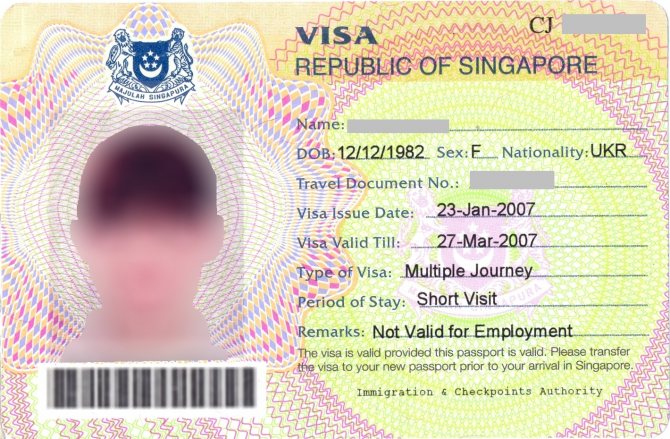
To obtain a visa to Singapore, apply not to the embassy, but to special organizations. The embassy of the city-state does not accept visa applications; accredited firms handle this.
FAQ
How much do intermediaries charge for paperwork?
The cost depends on the complexity of the procedure, the number of people and starts from $100 US.
The list of verified companies is posted online on the official portal of Singapore; the right to request a visa belongs to only a few international companies:
- Air carriers: Emirates Airlines, Singapore Airline;
- Pony Express courier service;
- Authorized agents in the country - Singaporevisa.
Important! If someone offers to send a request through the Asian Visa Application Center, Qatar Airways, Helen Tours, Aquavita - this is a scam. The listed companies are deprived of the right to request.
And a few more points:
- All submitted documents are converted by scanner or camera into digital format, then sent by email to an accredited company.
- In order not to scan the package of documents yourself, they go to the office of the Poni courier service, a visa center for Asian countries. These centers scan documents at a very low cost.
- Air carriers that can request a visa do not convert texts into digital data and accept ready-made documents.
The courier service and visa center for Asian countries only accept the application form electronically, but can help with scanning documents; air carriers do not scan documents, but they require you to fill out the application form in their offices.
“Behind our eyes they call us redheads”
In Singapore, everything is organized so that expats feel comfortable. The government cares about visiting highly qualified personnel and promotes tolerance towards visitors. If ten years ago there were outbreaks of xenophobia, now everything is peaceful.
At the same time, there is also hidden racism, especially from ethnic Chinese. Behind our backs we are called redheads, and no one is particularly embarrassed by this attitude.
Many Singaporeans are not very keen on communicating with expats. They have friends, relatives - why establish close relationships with visitors who will not stay here for long?
At first, the language barrier is also strongly felt: the locals speak Singlish - a mixture of English with different dialects of Chinese and Malay. A strong accent gets in the way at first.
Therefore, many expats communicate with each other. There are a lot of meetings, because we all have the same problem: we are in a country where we have no one, and everyone wants to find friends. I feel comfortable with Europeans or Americans: Belarusians have adopted a lot from Western culture, and it’s easy for me to find a common language with them. Although I also have local friends, they are certainly fewer.
Very high fines and strict rules
Singapore is often called fine city, which can be translated as “good city” or “city of fines”. Breaking the law in this country can really lead to ruin. Many of the rules are very original, and the punishment for breaking them is too severe. For example, the city has a ban on chewing gum. They simply cannot be brought into the country. The fine is simply prohibitive - S$100,000 (4.5 million rubles). This, of course, is the maximum fine established by law, and in each individual case the decision will be made by a judge, but it is better to give up chewing gum when traveling to Singapore.
Smoking in the wrong place or spitting on the street is not punished as strictly as having chewing gum, but the amount is also impressive - up to S$1,000 (about 45,000 rubles). The fine for eating and even drinking water on public transport is S$500 (22,000 rubles). And if you litter food on the street, you will get a “I littered” sign and spend the next weekend cleaning the streets.
Tolerance here is also cultivated through a system of fines and punishments: manifestations of intolerance towards other nationalities and religions can result in criminal liability.
Violation of migration rules by tourists, as well as theft, is punishable by caning. Despite such severe punishment and the excellent work of law enforcement agencies in Singapore, thefts do occur from time to time. The most serious punishment here for brutal murder, as well as distribution and use of drugs, is the death penalty.
The fines are sometimes quite ridiculous for us, for example, for feeding birds, for dogs barking in the evening and at night, for obscene language in public places, and even for not flushing the toilet. It is forbidden to connect to someone else's Wi-Fi network. Just recently there was a fine for walking around the house naked, in case one of the neighbors saw it.
So, beauty, order and cleanliness on the city streets are more the result of severe penalties. But it works.
It is worth noting that such severe fines make the country the safest in the world. It has the lowest crime rate. The majority of prisoners in prisons are traffic offenders.
“In Singapore, not all housing is available to visitors”
There were no problems with the arrangement of life. The company booked me a hotel for the first week and gave me the contact details of a real estate agent. In Singapore, not all housing is available to visitors - on rental websites there is a column indicating who exactly can apply for a contract: for example, only ethnic Chinese, only citizens and residents of Singapore, or everyone. The percentage of the latter, however, is high.
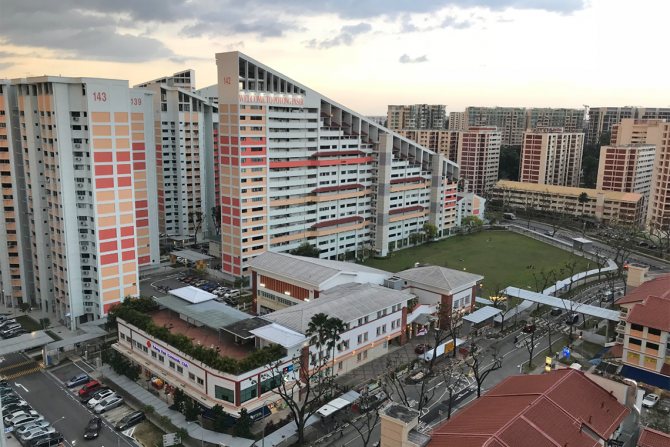
On the first day I looked at five apartments and made a choice. Half of the monthly rent went to pay for the agent's services, twice as much - to the deposit covering damage to the property. Plus you need to pay for the first month right away.
The rental housing market is well developed. When concluding a contract, for example, you can immediately ask the owner to add the necessary furniture. At the same time, everything is spelled out in the contract, including how often I should turn on the oven, even if I don’t use it.
But the tenant fixes minor damage at his own expense: I recently damaged a wall and paid about $80 to repair a small hole.
How the company got involved in VR
I had several attempts to organize my own business. I wanted to take a successful business from Russia and adapt it here, becoming a regional representative. I started with algorithmic trading and then moved on to 3D printing.
Virtual reality happened by accident: a friend asked if it was possible to watch the installations through a helmet. I researched the market and realized that there are few VR companies and offerings in Singapore. Large players did not enter here, which opened up potential for small companies like ours. We were positioned as a Russian company with headquarters in Singapore. In Asia, Russians are treated well: we are considered cool technical specialists.
It is believed that Russians work according to European standards, that is, with high quality, but at the same time they are twice as productive as Europeans.
Currently, the company has five full-time employees, and about ten more are outsourced. All technical parts are done in Russia. If we talk about taxes, then there are many bonuses for business. For example, a new company does not pay 75% of every 100 thousand SGD of profit for the first three years. And so the income tax is 17%. That is, if you earned 50 thousand in profit, 75% of it is not taxed, and the rest is at a rate of 17%.
For 5 years we have not had a single inspection. Yes, you have to submit financial statements, but I’ve never heard of someone coming to the office to conduct a search or check.
The market is very turbulent. There were no deals at all for three months, and last week I immediately closed the quarterly plan. In a good scenario, we can reach SGD million in revenue before the end of the year.
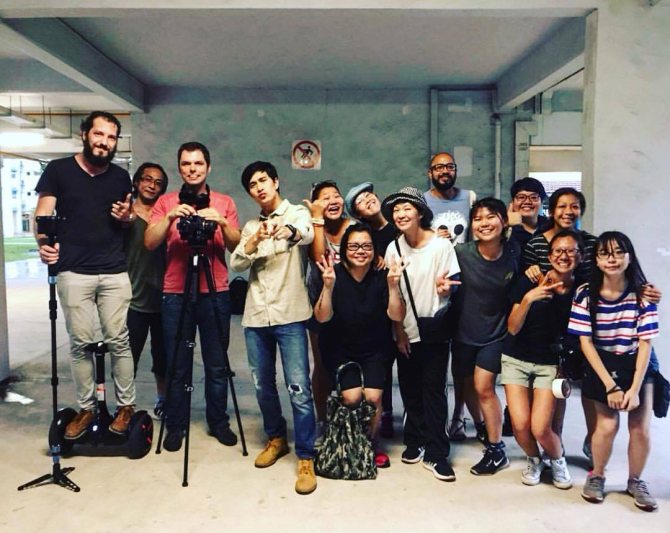
Our film crew. November, 2017
Daily life and local features: “The main attraction here is the food”
Living in Singapore is sometimes even more boring than living in Minsk. Locals are focused on their career, this is the meaning of their life, and the rest is secondary. Most people spend their weekends just on the couch and don’t think about how to organize their leisure time. And the entertainment industry itself is not very developed. You can spend the day at a botanical garden, Universal Studios or an amusement park on Sentosa Island.
And the main attraction here is the food. There is a lot of it, it is very tasty and different, it is a national passion. Every day my colleagues and I choose where to go: Chinese noodles, Korean kimchi, Japanese sashimi, Vietnamese chicken curry, Indian pancakes, Malay chicken rice, Mexican burritos or something new. And all this costs under $10.
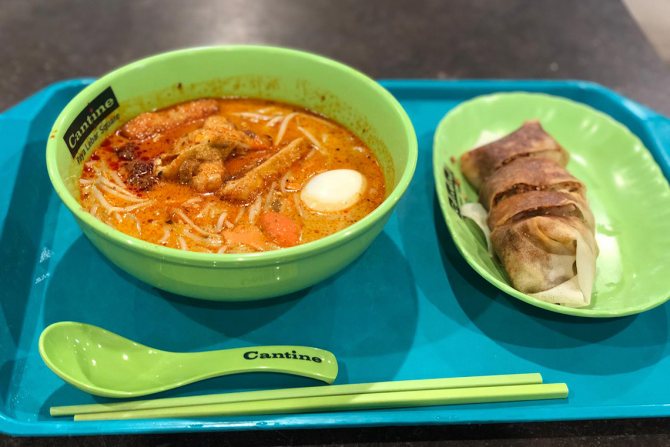
But in restaurants and bars, due to high taxes on alcohol, you will have to part with a significant amount. My friends and I once left $300 at a mediocre Austrian restaurant, ordering only three appetizers and a bottle of very simple wine.
That being said, no matter where you go, the service will most likely be terrible. The waiters don’t say hello or help you with your choice – they just silently sign up for you and leave.
Therefore, on weekends many people travel to neighboring countries. You can fly from Singapore to anywhere in Asia very cheaply. The island is connected to Malaysia by two bridges, where the border is located. The situation there at times resembles the border between Poland and Belarus: at peak times like Friday evening and Monday morning, you can stand in line for several hours. At the same time, passport control is automated: attach your passport, scan your thumbprint - and you can go through.
“Most have people who clean and even cook food.”
Singaporeans have very few vegetables in their diet. Vegetables in stores are not always of high quality, but are expensive because they are brought from other countries. This can be offset by tropical fruits from local markets. All drinks and sauces are much sweeter: due to the heat, people sweat a lot, energy is spent on maintaining optimal body temperature, and they have to indulge in sweets.
In stores they always ask how you will pay. Visa, Mastercard, NETS (something like our Belcard), payWave, cash - this needs to be voiced. I never understood why: after all, I hold the card in my hands!
Many people resort to the services of home assistants , helpers or maids. Most have people who clean and even prepare food. According to the contract, I was also offered an assistant, but I refused.
Not for reasons of economy: I’m just not used to someone coming into my house and touching my things, and I’m able to clean a one-room apartment myself.
All these helpers came here from Indonesia and the Philippines, work for little money six days a week, and on Sundays they meet together for picnics in public parks.
Singaporeans love holidays very much. They celebrate the Chinese New Year, Indian and Muslim holidays, Singapore's own and even Christian ones like Christmas and Easter - these are also weekends.
There are no police on the streets , and I still don’t know what the local law enforcement officers look like. At the same time, no one steals in the city; at night in the center near the bars and clubs, everyone behaves relatively decently. Just like in Minsk, I feel very safe at any time in any area.
Ordering coffee is a different story. There is a whole table with Chinese names on how to correctly order local Kopi coffee and Teh tea. Everything is indicated there: the content of condensed or concentrated milk, the amount of sugar - there is a separate name for each type. For example, I drink Kopi C Kosong: black coffee without sugar with concentrated unsweetened milk.
The city's infrastructure is designed in such a way that I almost don't need to go outside or even climb the stairs myself. There are elevators, escalators, subways, and passages everywhere. As a result, I move less than in Minsk, and therefore have to spend more time in the gym.
At times the public areas can be very crowded. There are incredible queues on the subway in the morning, and boarding the train can be difficult. On weekends there are also a lot of people in shopping centers. You constantly spend a lot of time in line for an escalator or elevator, in a cafe or restaurant, at the checkout in a supermarket, and even at the entrance to an office building.
In the equatorial climate there is no change of seasons. Every day the weather is the same: +32, humidity 86%, partly cloudy with possible tropical showers. Therefore, in my wardrobe I only have summer clothes and long sleeves, which must always be carried with me and worn in air-conditioned rooms. Psychologically, this “Groundhog Day” is a little unusual after the Belarusian climate.
Ways to obtain a residence permit
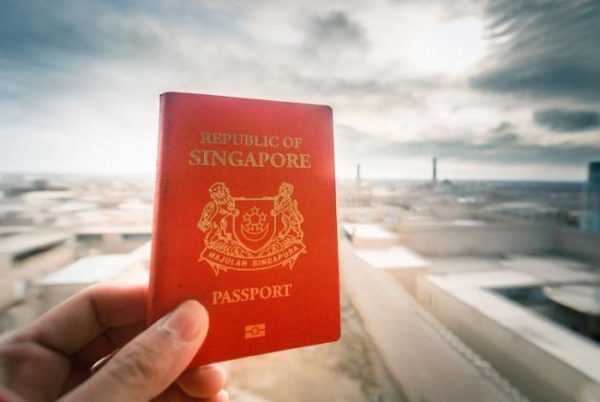
There are not many Russians who want to settle on these exotic Asian islands, but there are some among high-class professionals who want to receive a decent assessment of their activities in monetary terms. This country will be of interest to those for whom family safety is a priority and the hot equatorial climate is suitable.
The Singapore government attracts highly qualified foreigners. For them and other categories of people, there are several government-funded programs on how to move to Singapore. Before applying for citizenship, a person with nationality from another country must obtain a residence permit and live in this status for at least 2 years. Immigration to the metropolis is possible for:
- specialists employed in Singapore companies;
- entrepreneurs who opened a business in the republic;
- investors in one of the country's economic sectors;
- those included in the family reunification program;
- outstanding figures of science, culture, athletes;
- husbands/wives of Singaporean citizens.
The authorities are pursuing a policy of restrictions on the admission of refugees, so there are few of them here, mainly from Asian countries. This category of applicants can obtain citizenship after five years of residence in the metropolis. Emigration through public organizations is possible. Volunteers of humanitarian and religious missions with representative offices in the republic can also purchase an indigenous card.
Marrying a Singaporean
If a foreigner has formalized a marital union with a citizen of the republic, he has the right to apply for permanent residence, bypassing a residence permit. And already two years after resettlement, he will be able to obtain a passport. If the marriage took place in another state, it must be legalized in accordance with local legislation.
The authorities strictly monitor compliance with all rules and regulations. And if it is discovered that the marital union is fictitious, the violators will be severely punished and the foreigner will be deported. Children born into a family where at least one parent has a Singapore passport automatically receive the republic's indigenous status. However, their place of birth does not matter.
Family reunification
If any of the foreigner's close relatives lives in Singapore and has citizenship, you can apply for legal relocation. When emigrating on this basis, you must obtain a residence permit. Immediately after receiving the status, you can submit an application for permanent residence. Local legislation does not provide special benefits for retirees relocating to the country. This category of persons can obtain a residence permit on a general basis.
Moving on a work visa
Educated foreigners with high qualifications and experience have a chance to find work in Singapore. The opportunity to obtain a residence permit appears to persons who have entered into a contract with an employer. Work in Singapore for Russians is offered in the field of IT technologies, industry, and tourism. Civil aviation pilots, technicians, and mechanics are valued. There are jobs for girls in the entertainment industry.
The local employer must present a contract specifying the position, salary, schedule and working conditions. The presence of such a document allows a foreign worker to obtain a residence permit. The peculiarity of Singapore's migration legislation is that temporary resident status is considered only as a short interim period before obtaining permanent residence. Some emigrants can skip this stage and immediately apply for permanent status.
Read also: Visa to Singapore for Russians in 2021 Standard of living in Singapore
If the employer has no complaints against the foreign specialist, then after a few months he is obliged to request permanent residence for the employee. This clause is stated in the employment agreement. Permanent status is issued indefinitely, but with mandatory confirmation every 5 years.
Business immigration for entrepreneurs
There is virtually no corruption in Singapore, which attracts many foreigners to open a business here. You can register your company in a short time. The process itself will not take much time. But an entrepreneur must have the appropriate education, experience in company management, and a 5-year business plan approved by the country’s Ministry of Trade and Industry.
One of the ways to travel to Singapore on your own is to register a company of any legal form. At the same time, the minimum authorized capital is allowed to be one Singapore dollar, and the cost of the procedure will not exceed thousands. A businessman must open a bank account. Foreign entrepreneurs can immediately obtain a permanent residence permit. Local laws provide significant tax breaks for new companies; for the first three years they may not pay to the treasury at all.
Investing in business

Singapore gained its independence only in the middle of the last century and today's economic prosperity largely owes to financial investments from abroad. Those who provide monetary support to the state are granted a residence permit. To obtain status, the amount must be at least 2.5 million Singapore dollars. The annual turnover of the operating company in which the funds are invested must be 40 million US dollars or more.
Support is accepted only from entrepreneurs with an unblemished reputation. The current state program for attracting financing provides for the issuance of a permanent residence permit not only to a foreign investor, but also to his close relatives.
Residence permit for students
Education in Singapore is considered very prestigious. Diplomas from local universities are recognized throughout the world. In addition, prospects open up for a graduate of the institution to take a well-paid vacancy in the republic or in developed Asian countries - South Korea, China, Japan. Foreign students admitted to metropolitan universities are entitled to a residence permit. You can stay in Singapore after graduating from university by concluding a contract with an employer.
When submitting documents to the Department of Migration and Control of the Republic of Singapore, foreign students must present an agreement with the university and confirmation of the transfer of money for the first year of study. In addition, it is necessary to provide guarantees of the student’s financial capabilities. This could be a bank statement about the account balance, a sponsorship letter.
Buying a property
You can only buy an apartment in Singapore for 100 years. If its owner decides to sell the premises after 20 years, then the buyer acquires the right to 80. The cost depends on this period of time. But the foreign owner of the apartment receives only the right of residence; it is impossible to obtain a residence permit on this basis. But owning real estate or having a long-term lease agreement is one of the conditions for phased legalization in the republic.
How to move to Singapore: “All documents are prepared by the receiving party”
It is very easy for highly qualified specialists to get into Singapore. Candidates from abroad are considered here on an equal basis with local ones; you can search for vacancies on LinkedIn, on specialized sites like Stack Overflow and Tech In Asia, or contact employers directly. The minimum salary to obtain a work visa is $2,600 per month.
All documents are prepared by the receiving party. All that is required from a foreigner is an electronic photo, a scan of the last page of the passport, a completed application form and a couple of documents translated into English - these are educational documents and a pay slip from the last place of work. This package is sent by email to the employer, and after three weeks you already know the answer.
Upon arrival, within a month you must submit a photo and fingerprints to the Ministry of Labor; this is necessary to receive an Employment Pass card. It is issued for two years and is both a work permit and a multiple-entry visa.
Steps to obtain Singapore citizenship
In Singapore, the integration of foreigners into public life takes about 2 years. In this case, compliance with the legal stages is mandatory. Arrival in Singapore requires a visa. Depending on the purpose of entry and the duration of future stay, a certain type of entry document is issued. Foreigners have access to work, study and other types of visa documents.
With a visa, a migrant can stay in Singapore for a certain period of time. If you want to continue living and working in Singapore, you should take care of a residence permit. If a foreigner is employed on the territory of the state, he issues a permit. Such a document may also be requested by the company where the person will work. If a foreigner registers his own business, he will have to apply for a permit himself.
A work permit gives a migrant the right to cross the border into Singapore multiple times. He has the right to bring the child and arrange for him to study. A preferential tax system is applied to migrants. A person working in a Singapore company can contact the employees of a healthcare institution. However, the law prohibits changing jobs. If a foreigner is employed by a new company, he is required to obtain a new permit.
Obtaining a residence permit in Singapore guarantees a migrant a large number of advantages. This gives the right to change enterprises for employment. The person receives the right to medical care. In this case, it is necessary to undergo military service. The residence permit can be extended throughout life.
The next step is to request Singapore citizen status. In this case, a person is given the opportunity to purchase a home. Persons holding a Singapore passport can enter many countries without obtaining a visa. You will have to officially give up your previous passport - government rules do not recognize a second passport for its citizens.
“Every two years the Ministry of Labor decides whether the country needs you”
Every two years, the Ministry of Labor decides whether the country needs you. I know people who successfully worked here for ten years, and the next time they applied they were refused: “The country no longer needs you, goodbye.” But this is rather an exception; most easily extend the validity of the Employment Pass.
If you have a well-paid job and an open-ended contract, you can apply for a Singapore PR (Singapore Permanent Residence. – Ed.) – a residence permit for five years. The procedure is simple, but the percentage of approved applications is relatively low.
Citizenship is even more difficult to obtain, but it is not necessary, since even a residence permit allows you to stay in the country and enjoy all the benefits of the state: preferential housing and education, pensions.
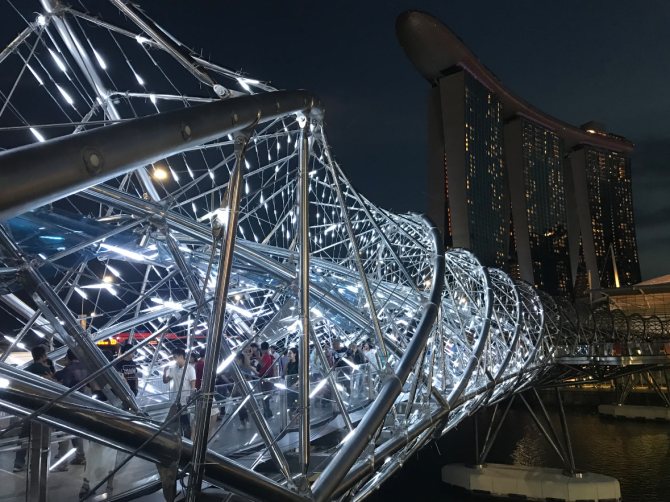
There is a high demand for representatives of three industries:
● Local IT specialists are very weak, so companies are willing to pay good money to candidates from abroad, including from the CIS. Specialists in data science and machine learning are especially in demand now.
● Banking sector employees are in demand, but people from Belarus are unlikely to be able to compete with specialists from Australia, the USA or the UK.
● There are also not enough doctors here, but it is quite difficult to recognize a Belarusian diploma here.
Some come on a tourist visa and try to find work locally, but this is not the best option. The employment process in the country is time-consuming: HR people are ready to spend three to four months selecting the best of the best.
The situation is similar for spouses who come on a long-term Dependent Pass visa: most areas are saturated with local specialists, and foreign candidates without work experience in Singapore are simply not needed.
Immigration Options
There are several ways to immigrate to Singapore:
- providing asylum for political refugees;
- immigration by marriage;
- investing in the country's economy;
- managing your own business;
- employment;
- admission to a Singaporean educational institution;
- reunification with relatives;
- immigration programs.
Granting political asylum
Singapore authorities provide immigration options for political refugees who need asylum. However, there are relatively few representatives of this category among Singaporean migrants, since the country's government does not welcome forced migrants. However, a limited number of refugees who are interested in how to go to live in Singapore are still given the opportunity to obtain permanent resident status, and after 5 years of living in Singapore, migrants can obtain citizenship.
Marriage to a Singaporean citizen
According to Singaporean law, marriage to a Singaporean citizen gives the official right to obtain a permanent residence permit.
If you marry a Singaporean citizen, you will not need to apply for a temporary residence permit - you can immediately apply for permanent resident status.
If the marriage took place outside Singapore, the marriage certificate should be legalized by the local migration authorities. After living in an official marriage in Singapore for two years, you can obtain citizenship.
Investing in the economy
Singapore provides immigration opportunities for those with an impressive business record and successful entrepreneurial experience. An investment program, the Global Investor Program, was developed especially for such applicants. Under the GIP program, you can choose one of the following investment options:
- Invest a minimum of US$2.5 million in a new business facility or expansion of an existing business operation;
- Invest a minimum of US$2.5 million in the GIP fund, which invests in the development of Singapore companies.
The applicant must have at least 3 years of entrepreneurial and business activity behind him, and also provide financial statements of his company for the last 3 years.
Business management
Businessmen interested in moving to Singapore should submit a detailed five-year business plan or investment plan with projected employment and an annual financial forecast. The business plan must be completed within 5 years of final approval of permanent resident status. If the business plan provides for investment in an existing Singapore company, then the manager must fulfill additional requirements:
- hire at least 5 new employees;
- The total annual additional business expense must be at least $1 million.
Official employment
For those interested in how to emigrate to Singapore for the purpose of employment, there is an opportunity to take advantage of the PTS (Professionals/Technical personnel/Skilled workers) program. Immigration to Singapore under this program provides employment opportunities for representatives of such categories as professionals, technical personnel and skilled workers. However, employment is only possible if an official work permit is obtained from a Singaporean employer. The employer must provide the foreign worker with a contract that specifies his position, job responsibilities, working conditions, work schedule, duration of the contract and salary. If the employer is satisfied with the work of the foreign specialist, he can begin the process of preparing to obtain permanent resident status for his employee.
Admission to an educational institution
For foreigners entering Singapore for the purpose of studying, a temporary residence permit is provided. To do this, the Immigration Service must provide a contract for training, a receipt for payment of the first course and confirmation of financial guarantees from the parents. Permanent resident status can be obtained by getting a job after graduation - if you have a Singaporean diploma, this should not be a problem.

Family reunion
The following categories of relatives of a Singaporean citizen can benefit from the family reunification program in Singapore:
- parents;
- Grandmothers and grandfathers;
- children;
- spouses.
Applying for permanent residence under the family reunification program requires lengthy consideration on an individual basis. And if the Singapore Immigration Service is very busy, then processing the application can take up to one year.
Government immigration programs
The most effective immigration programs for a simplified immigration process to Singapore are:
- investment program Global Investor Program;
- Professionals/Technical personnel/Skilled workers employment program, which provides Employment Pass and S Pass permits;
- program to reunite with family members who have Singaporean citizenship or permanent resident status.
Each of these programs has different conditions and a list of required documents, so preparation for their execution should begin with a detailed review of the requirements on the official website of the Singapore Immigration Service https://www.ica.gov.sg.
Prices: “It’s cheapest to eat out”
In IT, the average salary of a specialist with five years of experience is from 5 to 7 thousand dollars per month before taxes.
The main expense item is rent. The cheapest option is to rent a room with someone, you can spend $700–900. A one-room apartment in rental public housing will cost $1000–1300, a condominium with a swimming pool, gym and other amenities will cost $1400–1800.
The cost of utilities is lower than in Belarus, but due to constantly running air conditioners that consume a lot of electricity, it comes out to about $70 a month.
Regular monthly payments are Internet ($45), mobile communications ($30), public transport ($70). Every three months I pay another $100 to clean the air conditioner.

The tax rate, firstly, depends on whether you are a tax resident (for this you need to work in the country for more than 183 days a year), and secondly, on the amount of income. Those who earn the least pay almost nothing, the richest pay 22%.
My tax rate is about 7%, about $400 per month, due at the beginning of the next calendar year.
About $600 is spent on food per month. The cheapest option is to eat out: in local hawker center canteens you can have a meal for $3-4, a business lunch in a cafe will cost $7-9. On average, I spend $10–15 on food every day. It costs about $200–250 a month to buy vegetables and fruits at home.
A separate article is alcohol. I often go out with colleagues and friends and pay about $40 for two or three glasses of beer or wine. It happens that you change several places in an evening, and in the end one such evening can cost $100.
Singapore Citizenship
Emigration to Singapore is possible only for several categories of foreigners:
- investors;
- businessmen;
- world-famous artists, musicians, actors;
- major specialists in a certain field with higher education and work experience.
It is impossible for a citizen who does not belong to any of the above categories to obtain citizenship in the island state . On a general basis, immigration to Singapore from Russia is in the following order:
First you need to find an employer. This is the main condition for issuing an Employment Pass (work permit). It allows you to freely cross the borders of the island during the entire validity period of the permit (standard - 1-2 years, maximum - 5 years). The Employment Pass gives foreigners most of the rights of native residents - enrolling children in kindergarten, taking out bank loans, registering with government agencies, etc.
After six months, you can apply for a residence permit. Here it is called Permanent Resident (analogous to a Green Card). If you refuse, nothing bad happens - the foreigner simply continues to live and work under the Employment Pass. When reviewing documents, the first thing that is taken into account is how useful the applicant is to Singapore society. For example: a school teacher and director of a company with a large number of jobs have a high chance of quickly getting PR. This status results in the obligation to serve in the military for those between 21 and 45 years of age for two years. To avoid conscription, many foreigners live and work on their original visa until they reach the maximum age, and keep their children on a dependent visa.
After 2 years of residence permit status, you can begin trying to obtain citizenship in Singapore. As with PR, getting a positive response the first time is quite difficult. Citizenship in Singapore offers significant benefits. In addition to visa-free entry, this is the opening of a personal savings account. He receives 35% of his salary every month - a guarantee of a comfortable old age for pensioners. Naturalized citizens, like native-born citizens, pay 20–50% less for education at state universities than foreigners.
Together with the main applicant, his family - spouse and children under 21 - can go through all stages. Is it possible to obtain Singaporean citizenship in 2 years? Theoretically, yes. But in practice, the entire process, from finding an employer to issuing a passport, usually takes from 5 to 15 years. For investors and successful businessmen, there is an accelerated program for establishing roots in Singapore when making investments in the country's economy.
Salaries and scholarships
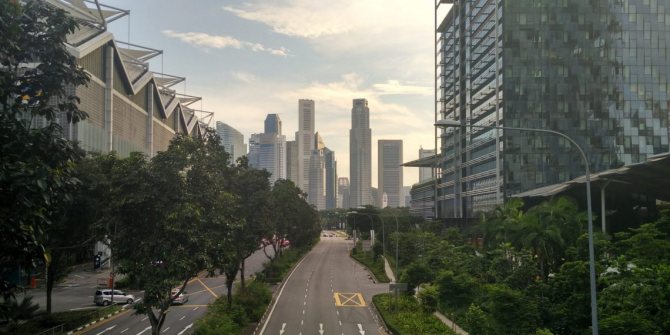
There is a huge range in salaries in Singapore. They start from 2.5–3 thousand Singapore dollars (1 Singapore dollar (SGD) - 48.6 rubles) per month and go up to 30 thousand. Programmers earn 6–10 thousand a month, almost the same as financiers. But, of course, it depends on the company. My university research friends get paid S$3.5-5k per month. In the restaurant business they earn 2-3 thousand.
My university offers scholarships for foreigners from the Singapore Ministry of Education. These include monthly payments (2-2.5 thousand Singapore dollars) and tuition fees (about 12-14 thousand Singapore dollars per semester). Every year you need to confirm your student status, the scholarship is paid for four years. If you were unable to complete your studies during this time, you will have to pay for additional semesters yourself.
Also, to receive a scholarship there is a condition - 140 hours of work as a teacher at the university, 200 hours of assisting the professor in teaching activities and another 80 hours of participation in conferences and other events.
I have a Student Pass visa, which allows me to work 16 hours a week with the permission of the faculty. You can find part-time work at the university itself. Typically, a student is paid S$15-30 per hour of work.
